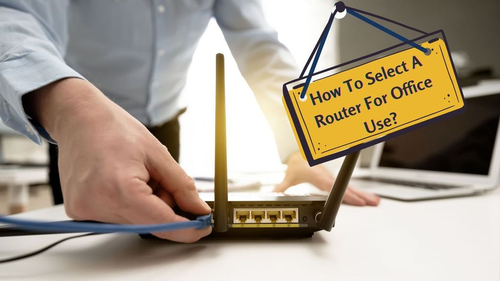If you are searching for a suitable router for office use, then you must have a good idea about the features that you need to look for to ensure a seamless internet experience in your work environment. You cannot compromise with security as it cannot afford to take the risk of sensitive information getting stolen while you are online. This often happens when we are using public Wi-FI networks. A big organisation with a large number of staff, operating systems and devices cannot afford to take this risk.
Even a small office must be able to operate in a secure environment or else the employees will lose confidence and that will affect the performance of your team. Hence, you need to be extremely careful while selecting a router for installation in your office.
To suggest brands that you should consider for buying a powerful 4G or 5G router Teltonika is among the top manufacturers. Now, let’s have a look at the reasons for using a router in your office setting.
Why should you use a Router in Your office?
Using a router in an office environment is not just beneficial to the employees but has become essential to ensure the smooth functioning of a business in the digital age. Because every task, no matter how big or small, is being carried out online with the help of different software programs, communication is the key to ensuring that the work gets done on time without any discrepancies.
It is common to miss your deadlines due to slow internet and no one wants to miss a big opportunity due to slow internet that messes up all your work schedules. Imagine you get an important assignment from your head office which has to be completed on priority. But the slow internet is interrupting your workflow and efficiency. Such a situation can be avoided by using a powerful router.
Now, let’s have a look at the benefits of using a 5G industrial router in your office as it is especially designed to meet the industrial protocol.
- Network Segmentation: Routers help segment the network into different subnets, allowing for better organisation and security. For instance, you can have separate subnets for employees, guests, and servers, each with its own access controls and security policies.
- Internet Sharing: Routers allow multiple devices to share a single internet connection. This is essential in offices where numerous devices need internet access, such as computers, smartphones, tablets, and printers.
- Traffic Control: Routers enable traffic shaping and prioritisation, allowing administrators to allocate bandwidth resources according to the needs of different applications or users. This ensures that critical tasks, such as VoIP calls or video conferencing, receive sufficient bandwidth without being slowed down by other less important activities.
- Security: Routers often include built-in firewall capabilities, which help protect the office network from unauthorised access and malicious attacks from the internet. They can also provide features like Virtual Private Network (VPN) support for secure remote access to the office network. The Teltonika 5g router is especially a good option for those who are looking for a high-speed router which provides a secure internet experience.
- Improved Performance: Routers can improve network performance by efficiently routing traffic between devices and optimising the flow of data. They can also reduce network congestion by intelligently managing data transmission.
- Wireless Connectivity: Many modern routers include Wi-Fi capabilities, allowing wireless devices such as laptops, smartphones, and tablets to connect to the network. This enhances flexibility and mobility within the office environment.
- Centralised Management: Routers often come with management interfaces or software that allows administrators to centrally monitor and configure network settings, troubleshoot issues, and enforce security policies.
Overall, using a router in an office environment provides essential networking capabilities that facilitate efficient communication, collaboration, and productivity while ensuring security and performance.
Final Words
To summarise, the router you choose for office usage should be durable and scalable in the long run. Because an office can expand as the business grows and if you are required to add more devices to the office network, the router must have enough capacity to provide internet access to all users without any deviation in speed. The router should also be cost-effective and easy to configure. So, select the best one based on your budget and needs.




